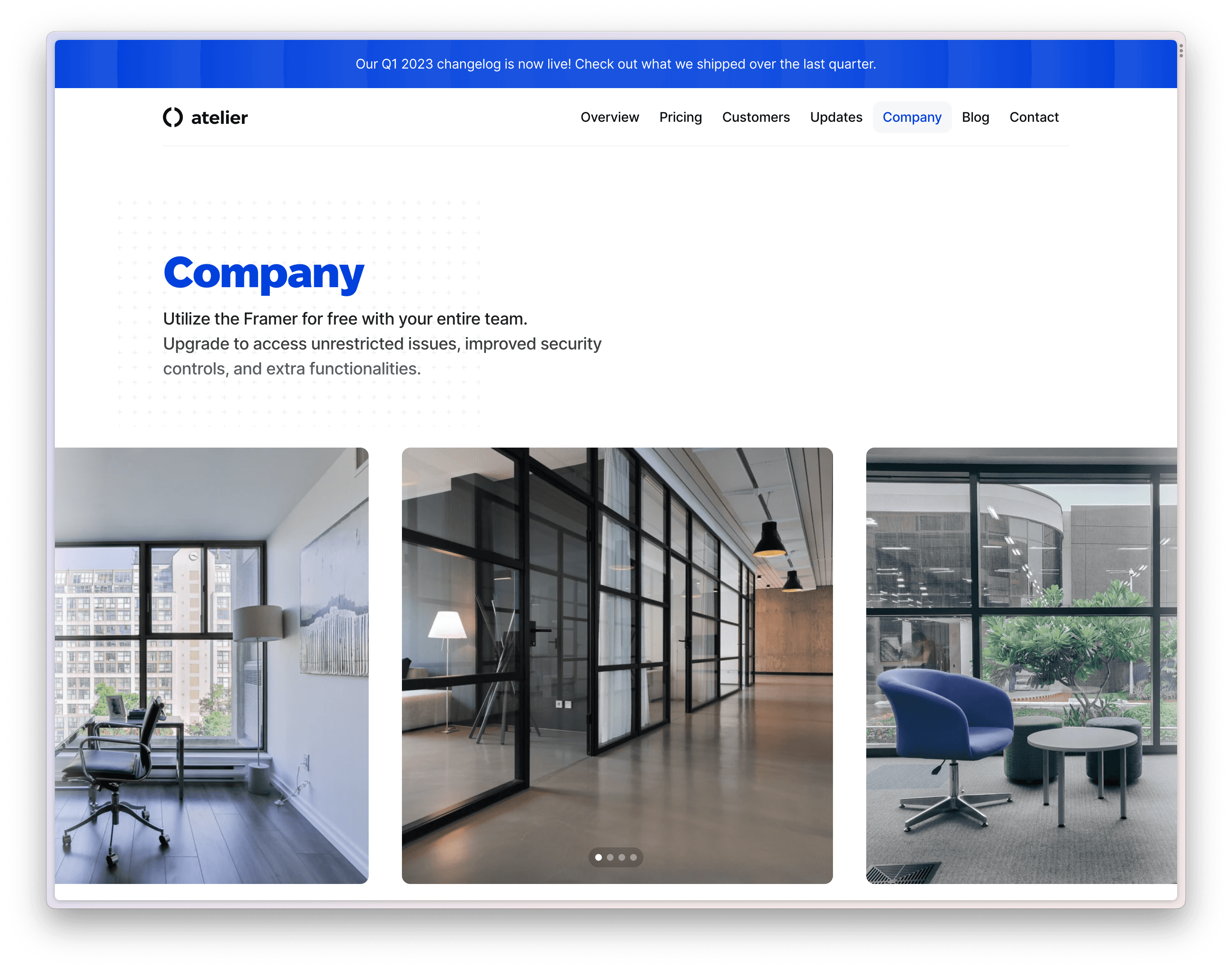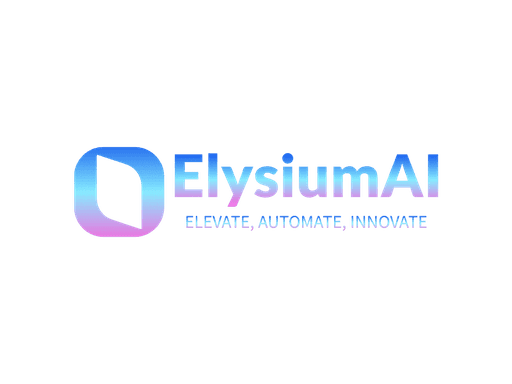Automation in Business
Automation in Business
Automation in Business
June 1, 2023
June 1, 2023
June 1, 2023



Nikol Hayes
Technology Engineer

Nikol Hayes
Technology Engineer

Nikol Hayes
Technology Engineer
The AI revolution is transforming businesses. This post explores how artificial intelligence is automating tasks, generating valuable insights, and revolutionizing customer experiences. Learn how companies can start implementing AI through quick pilot projects and by embracing a data-driven culture. Discover best practices for integrating AI across operations, measuring ROI, and preparing staff through reskilling. The future will belong to businesses that strategically adopt AI. Is your company ready to leverage AI and thrive?
The AI revolution is transforming businesses. This post explores how artificial intelligence is automating tasks, generating valuable insights, and revolutionizing customer experiences. Learn how companies can start implementing AI through quick pilot projects and by embracing a data-driven culture. Discover best practices for integrating AI across operations, measuring ROI, and preparing staff through reskilling. The future will belong to businesses that strategically adopt AI. Is your company ready to leverage AI and thrive?
The AI revolution is transforming businesses. This post explores how artificial intelligence is automating tasks, generating valuable insights, and revolutionizing customer experiences. Learn how companies can start implementing AI through quick pilot projects and by embracing a data-driven culture. Discover best practices for integrating AI across operations, measuring ROI, and preparing staff through reskilling. The future will belong to businesses that strategically adopt AI. Is your company ready to leverage AI and thrive?
Artificial intelligence (AI) is transforming companies across industries. As AI capabilities rapidly advance, businesses must understand this technology and adopt strategies to leverage its benefits. In this post, we’ll examine the AI revolution, its business impacts, and how companies can implement AI to gain a competitive edge.
What is AI and How is it Used in Business?
AI refers to computer systems that can perform tasks normally requiring human intelligence, such as visual perception, speech recognition, and decision-making. AI encompasses a range of techniques like machine learning, natural language processing, robotics, and more.
Key business applications of AI include:
Automating repetitive, high-volume tasks like data entry to reduce labor costs. Chatbots and robotic process automation (RPA) are common here.
Analyzing massive amounts of data to uncover insights for strategic decisions. Machine learning algorithms can detect patterns and make predictions.
Providing personalized recommendations and content to customers by analyzing their data and behavior. This improves conversion and retention.
Streamlining operations and workflows by using AI to automate processes across departments. Supply chain is one area seeing major impact.
Enhancing customer service through AI chatbots that offer 24/7 instant support and consistency.
The Benefits and Use Cases Driving AI Adoption
Cost Reduction AI delivers major cost savings by eliminating repetitive manual work. Bots and RPA can handle high-volume, rules-based tasks with greater speed and accuracy than humans.
Revenue Growth
Sophisticated AI like recommendation engines boost sales. Chatbots also qualify leads and schedule demos instantly. AI uncovers new revenue opportunities.
Improved Customer Experience
AI chatbots deliver instant, personalized support. Predictive analytics tailor offerings to each customer. AI also provides consistency in CX.
Better Strategic Decisions
By crunching volumes of data, AI models uncover complex patterns and insights for informed business strategy and planning.
Efficient Operations
AI streamlines processes like inventory and logistics through supply chain automation. This reduces costs and frees up staff time.
Developing an AI Strategy - Best Practices
Start with a Pilot Project
Target a contained business area or specific use case. Run an AI pilot to demonstrate value before expanding.
Choose Solutions Aligned to Your Needs
Select AI applications that solve your biggest pain points. Chatbots for CX and RPA for task automation are common starting points.
Build a Data-Driven Culture
Collect quality data to train AI algorithms. Ensure teams embrace data-based decision making.
Prepare Employees for AI Adoption
Reskill staff on AI-related roles. Change processes to integrate AI. Communicate to build buy-in.
Continuously Measure ROI
Set clear KPIs. Track AI impact on costs, revenue, productivity. Maintain only AI that proves robust ROI.
The Future with AI
As AI capabilities grow, it will enable new innovations and business models. More industries will feel disruption from intelligent automation. To stay competitive, companies must adopt AI within their operations and customer engagement.
The AI revolution is happening now. Businesses that strategically leverage AI will be poised to thrive in the future as leaders in their market. Is your company ready?
Artificial intelligence (AI) is transforming companies across industries. As AI capabilities rapidly advance, businesses must understand this technology and adopt strategies to leverage its benefits. In this post, we’ll examine the AI revolution, its business impacts, and how companies can implement AI to gain a competitive edge.
What is AI and How is it Used in Business?
AI refers to computer systems that can perform tasks normally requiring human intelligence, such as visual perception, speech recognition, and decision-making. AI encompasses a range of techniques like machine learning, natural language processing, robotics, and more.
Key business applications of AI include:
Automating repetitive, high-volume tasks like data entry to reduce labor costs. Chatbots and robotic process automation (RPA) are common here.
Analyzing massive amounts of data to uncover insights for strategic decisions. Machine learning algorithms can detect patterns and make predictions.
Providing personalized recommendations and content to customers by analyzing their data and behavior. This improves conversion and retention.
Streamlining operations and workflows by using AI to automate processes across departments. Supply chain is one area seeing major impact.
Enhancing customer service through AI chatbots that offer 24/7 instant support and consistency.
The Benefits and Use Cases Driving AI Adoption
Cost Reduction AI delivers major cost savings by eliminating repetitive manual work. Bots and RPA can handle high-volume, rules-based tasks with greater speed and accuracy than humans.
Revenue Growth
Sophisticated AI like recommendation engines boost sales. Chatbots also qualify leads and schedule demos instantly. AI uncovers new revenue opportunities.
Improved Customer Experience
AI chatbots deliver instant, personalized support. Predictive analytics tailor offerings to each customer. AI also provides consistency in CX.
Better Strategic Decisions
By crunching volumes of data, AI models uncover complex patterns and insights for informed business strategy and planning.
Efficient Operations
AI streamlines processes like inventory and logistics through supply chain automation. This reduces costs and frees up staff time.
Developing an AI Strategy - Best Practices
Start with a Pilot Project
Target a contained business area or specific use case. Run an AI pilot to demonstrate value before expanding.
Choose Solutions Aligned to Your Needs
Select AI applications that solve your biggest pain points. Chatbots for CX and RPA for task automation are common starting points.
Build a Data-Driven Culture
Collect quality data to train AI algorithms. Ensure teams embrace data-based decision making.
Prepare Employees for AI Adoption
Reskill staff on AI-related roles. Change processes to integrate AI. Communicate to build buy-in.
Continuously Measure ROI
Set clear KPIs. Track AI impact on costs, revenue, productivity. Maintain only AI that proves robust ROI.
The Future with AI
As AI capabilities grow, it will enable new innovations and business models. More industries will feel disruption from intelligent automation. To stay competitive, companies must adopt AI within their operations and customer engagement.
The AI revolution is happening now. Businesses that strategically leverage AI will be poised to thrive in the future as leaders in their market. Is your company ready?
Artificial intelligence (AI) is transforming companies across industries. As AI capabilities rapidly advance, businesses must understand this technology and adopt strategies to leverage its benefits. In this post, we’ll examine the AI revolution, its business impacts, and how companies can implement AI to gain a competitive edge.
What is AI and How is it Used in Business?
AI refers to computer systems that can perform tasks normally requiring human intelligence, such as visual perception, speech recognition, and decision-making. AI encompasses a range of techniques like machine learning, natural language processing, robotics, and more.
Key business applications of AI include:
Automating repetitive, high-volume tasks like data entry to reduce labor costs. Chatbots and robotic process automation (RPA) are common here.
Analyzing massive amounts of data to uncover insights for strategic decisions. Machine learning algorithms can detect patterns and make predictions.
Providing personalized recommendations and content to customers by analyzing their data and behavior. This improves conversion and retention.
Streamlining operations and workflows by using AI to automate processes across departments. Supply chain is one area seeing major impact.
Enhancing customer service through AI chatbots that offer 24/7 instant support and consistency.
The Benefits and Use Cases Driving AI Adoption
Cost Reduction AI delivers major cost savings by eliminating repetitive manual work. Bots and RPA can handle high-volume, rules-based tasks with greater speed and accuracy than humans.
Revenue Growth
Sophisticated AI like recommendation engines boost sales. Chatbots also qualify leads and schedule demos instantly. AI uncovers new revenue opportunities.
Improved Customer Experience
AI chatbots deliver instant, personalized support. Predictive analytics tailor offerings to each customer. AI also provides consistency in CX.
Better Strategic Decisions
By crunching volumes of data, AI models uncover complex patterns and insights for informed business strategy and planning.
Efficient Operations
AI streamlines processes like inventory and logistics through supply chain automation. This reduces costs and frees up staff time.
Developing an AI Strategy - Best Practices
Start with a Pilot Project
Target a contained business area or specific use case. Run an AI pilot to demonstrate value before expanding.
Choose Solutions Aligned to Your Needs
Select AI applications that solve your biggest pain points. Chatbots for CX and RPA for task automation are common starting points.
Build a Data-Driven Culture
Collect quality data to train AI algorithms. Ensure teams embrace data-based decision making.
Prepare Employees for AI Adoption
Reskill staff on AI-related roles. Change processes to integrate AI. Communicate to build buy-in.
Continuously Measure ROI
Set clear KPIs. Track AI impact on costs, revenue, productivity. Maintain only AI that proves robust ROI.
The Future with AI
As AI capabilities grow, it will enable new innovations and business models. More industries will feel disruption from intelligent automation. To stay competitive, companies must adopt AI within their operations and customer engagement.
The AI revolution is happening now. Businesses that strategically leverage AI will be poised to thrive in the future as leaders in their market. Is your company ready?
Subscribe to our newsletter
Receive weekly updates on new posts and features
Subscribe to our newsletter
Receive weekly updates on new posts and features
Subscribe to our newsletter
Receive weekly updates on new posts and features



Begin your
ElysiumAI Experience
Whether you're just discovering ElysiumAI or returning to explore our latest offerings in AI automation, we'll have you equipped and prepared to optimize your business processes swiftly.


Begin your
ElysiumAI Experience
Whether you're just discovering ElysiumAI or returning to explore our latest offerings in AI automation, we'll have you equipped and prepared to optimize your business processes swiftly.


Begin your
ElysiumAI Experience
Whether you're just discovering ElysiumAI or returning to explore our latest offerings in AI automation, we'll have you equipped and prepared to optimize your business processes swiftly.
